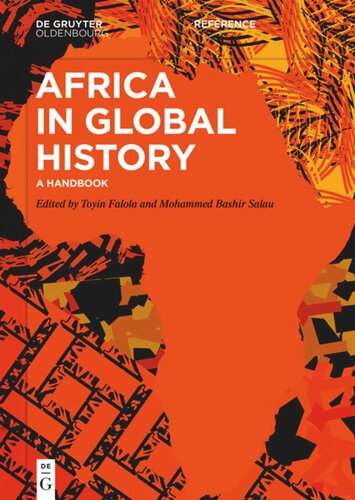

Most ebook files are in PDF format, so you can easily read them using various software such as Foxit Reader or directly on the Google Chrome browser.
Some ebook files are released by publishers in other formats such as .awz, .mobi, .epub, .fb2, etc. You may need to install specific software to read these formats on mobile/PC, such as Calibre.
Please read the tutorial at this link: https://ebookbell.com/faq
We offer FREE conversion to the popular formats you request; however, this may take some time. Therefore, right after payment, please email us, and we will try to provide the service as quickly as possible.
For some exceptional file formats or broken links (if any), please refrain from opening any disputes. Instead, email us first, and we will try to assist within a maximum of 6 hours.
EbookBell Team

0.0
0 reviewsThis handbook places emphasis on modern/contemporary times, and offers relevant sophisticated and comprehensive overviews. It aims to emphasize the religious, economic, political, cultural and social connections between Africa and the rest of the world and features comparisons as well as an interdisciplinary approach in order to examine the place of Africa in global history.
"This book makes an important contribution to the discussion on the place of Africa in the world and of the world in Africa. An outstanding work of scholarship, it powerfully demonstrates that Africa is not marginal to global concerns. Its labor and resources have made our world, and the continent deserves our respect." – Mukhtar Umar Bunza, Professor of Social History, Usmanu Danfodiyo University, Sokoto, and Commissioner for Higher Education, Kebbi State, Nigeria
"This is a deep plunge into the critical place of Africa in global history. The handbook blends a rich set of important tapestries and analysis of the conceptual framework of African diaspora histories, imperialism and globalization. By foregrounding the authentic voices of African interpreters of transnational interactions and exchanges, the Handbook demonstrates a genuine commitment to the promotion of decolonized and indigenous knowledge on African continent and its peoples." – Samuel Oloruntoba, Visiting Research Professor, Institute of African Studies, Carleton University